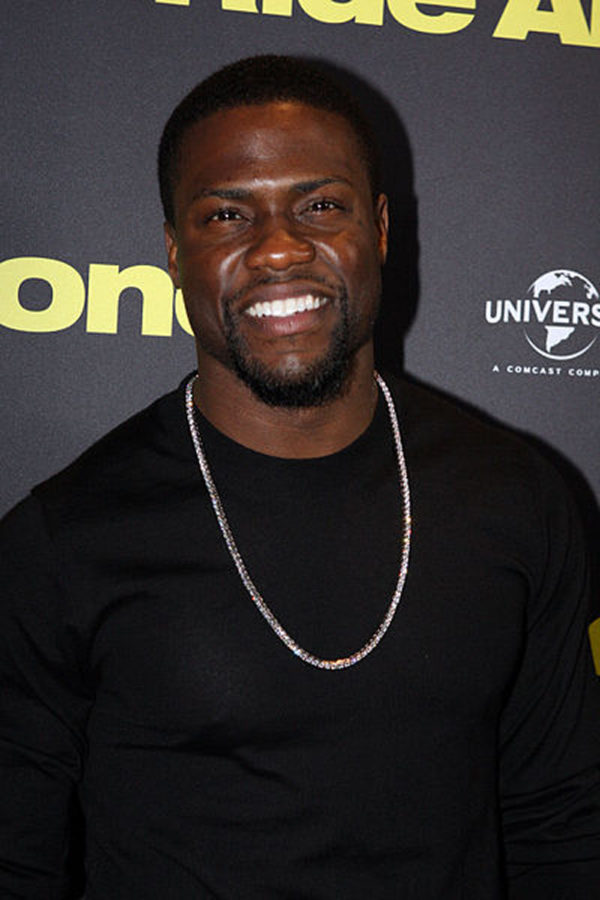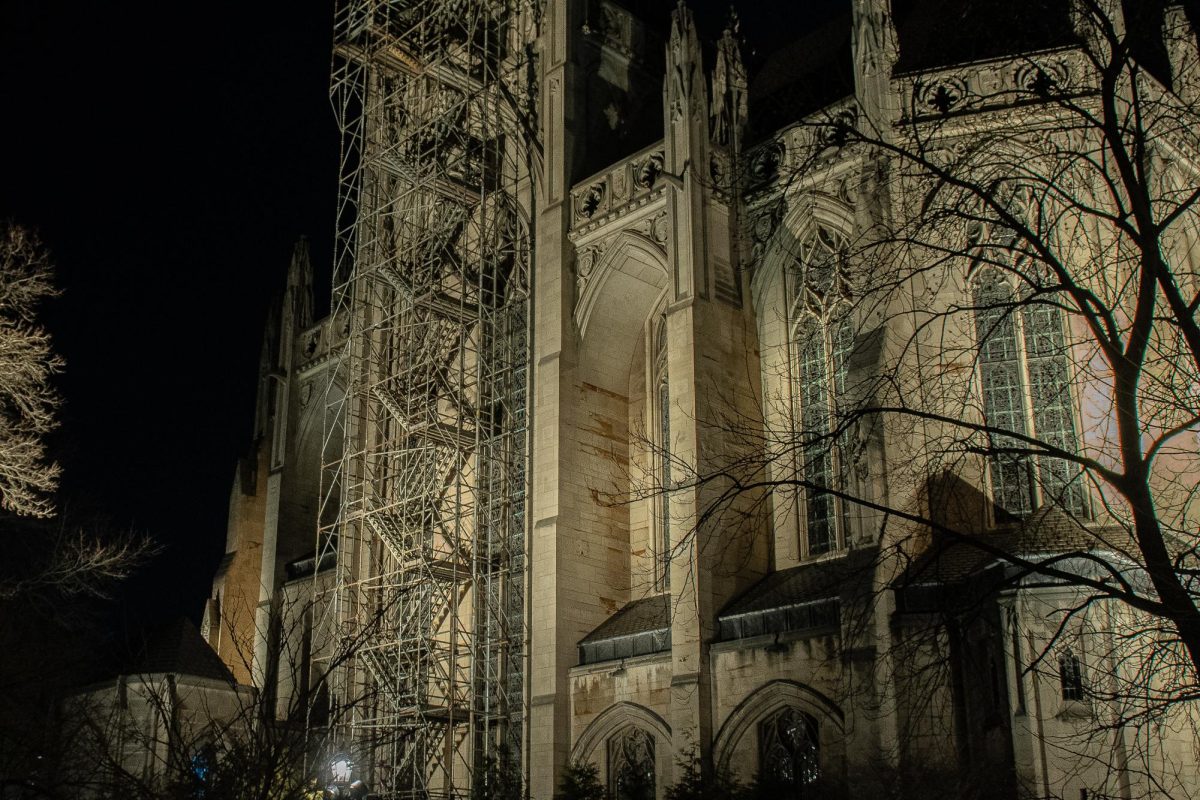Opinion | Point-Counterpoint: Nobody needs to forgive Kevin Hart
Via Eva Rinaldi | Wikimedia Commons
Members of the LGBTQ+ community protested the choice of Kevin Hart as this year’s host of the Oscars because of a series of tweets in 2010 and 2011 and his subsequent response to them.
January 13, 2019
Critics of Kevin Hart are oft characterized as entitled and oversensitive, but Hart has proven those descriptions are actually befitting of him.
Recent criticism of his 2010 and 2011 homophobic statements by members of the LGBTQ+ community prompted controversy over his hosting of the Oscars and resulted in his resignation. Now, he is supposedly the newest victim of “cancel culture,” or the collective decision to stop supporting a particular public figure, either because of personal distaste or desire to give them consequences for their actions. Its prior usage as a mainly lighthearted and sarcastic phrase has now been overtaken by defenders of allegedly problematic media personas.
In a Study Breaks article titled “Cancel Culture Is #Cancelled,” contributor Melissa Lee writes that educating people works better than sanctioning them when they make a misunderstood statement.
“[Cancel culture] relies heavily on the idea that people aren’t allowed to make mistakes,” Lee says. “[O]nline users would rather … well, cancel people instead of educate them.”
But Hart did not make an innocent slight against the LGBTQ+ community, and he hasn’t proven himself to be open to education.
“One of my biggest fears is my son growing up and being gay. That’s a fear,” he said in 2010. “Keep in mind, I’m not homophobic, I have nothing against gay people, be happy. Do what you want to do. But me, being a heterosexual male, if I can prevent my son from being gay, I will. Now with that being said, I don’t know if I handled my son’s first gay moment correctly. Every kid has a gay moment but when it happens, you’ve got to nip it in the bud!”
A year later he tweeted, “Yo if my son comes home & try’s 2 play with my daughters doll house I’m going 2 break it over his head & say n my voice ‘stop that’s gay.’”
Such poor excuses for jokes intentionally appeal to an anti-LGBTQ+ audience that would feel justified in their desires to hit their homosexual children. Threatening violence against your son for his sexuality — supposed or otherwise — is serious. Parents have quite literally killed their children for it before.
Supporting violence against gay children, even halfheartedly, is unacceptable. No one should have to teach a grown man in his thirties that saying or doing that is morally wrong.
Of course it is “unrealistic to expect your favorite celebrity to have all the right answers and opinions” as Lee writes. But understanding that beating your young child because of how they were born is not an unreasonable standard.
Kevin Hart had many chances to apologize before being pressured to do so.
“I wouldn’t tell that joke today, because when I said it, the times weren’t as sensitive as they are now,” he said when Rolling Stone confronted him about his 2010 quote. “I think we love to make big deals out of things that aren’t necessarily big deals, because we can.”
He had the chance to learn, but only wanted to defend himself. People tried to educate him, but he refused to issue a proper apology, instead calling his critics oversensitive. When the media gave him ample opportunities to show genuine remorse and growth, he resorted to complaining. He has appeared to want to use his recent television appearances to “keep” apologizing, but has instead used his platform to victimize himself and groan about how “cancel culture” has canceled him.
As of now, the best apology he has provided is two sentences, partly spoken in the third person.
“Once again, Kevin Hart apologizes for his remarks that hurt members of the LGBTQ community. I apologize,” he said on his “Straight from the Hart” podcast.
Hart’s critics should concede that he has received criticism from racists who cheer at any opportunity to take a black person down. They should also concede that other public figures have done things far worse and only received a slap on the wrist. But these facts do not signal that members of the LGBTQ+ community have no right to their own feelings.
These feelings are not the result of offendedness or oversensitivity. Members of the LGBTQ+ community face actual harm from a world that is openly hostile to them. Kevin Hart’s “jokes” encouraged and legitimized violence against them for a few cheap laughs. The fact that he has the nerve to whine on television about how he is essentially entitled to their support regardless of what he inflicted upon them warrants disgust. Members of the LGBTQ+ community have every right to withhold their respect from someone who has willingly and repeatedly withheld it from them.
Kevin Hart’s supporters say that even if his LGBTQ+ fans have the right to not support him, he should not lose his career over past mistakes, and he should still be able to host the Oscars.
But his career has thrived even after the media discovered his hateful statements. He has a sizable role in the movie “The Upside” that came out last Friday and two more movies coming out later this year. On top of that, he chose to resign — the Academy only required him to apologize.
And “cancel culture” has largely failed to administer appropriate consequences for people’s actions. Louis C. K. has almost instantaneously continued where he left off on his comedy career after multiple women accused him of sexual misconduct and now uses his platform to complain about school shooting survivors. R. Kelly’s profits rose after the documentary about his brutal acts, “Surviving R. Kelly,” aired.
Despite the reactionary backlash to the increasingly mythical “cancel culture,” people have the choice of whether or not to support someone famous. No one can take that away from them. If the media will not hold people in the spotlight responsible for their actions, but rather give them days’ worth of airtime to relentlessly complain, members of the public should be able to make that decision for themselves.
Kevin Hart — and other adult public figures who break down over the slightest criticism — do not fear “cancel culture.” They fear accountability.



